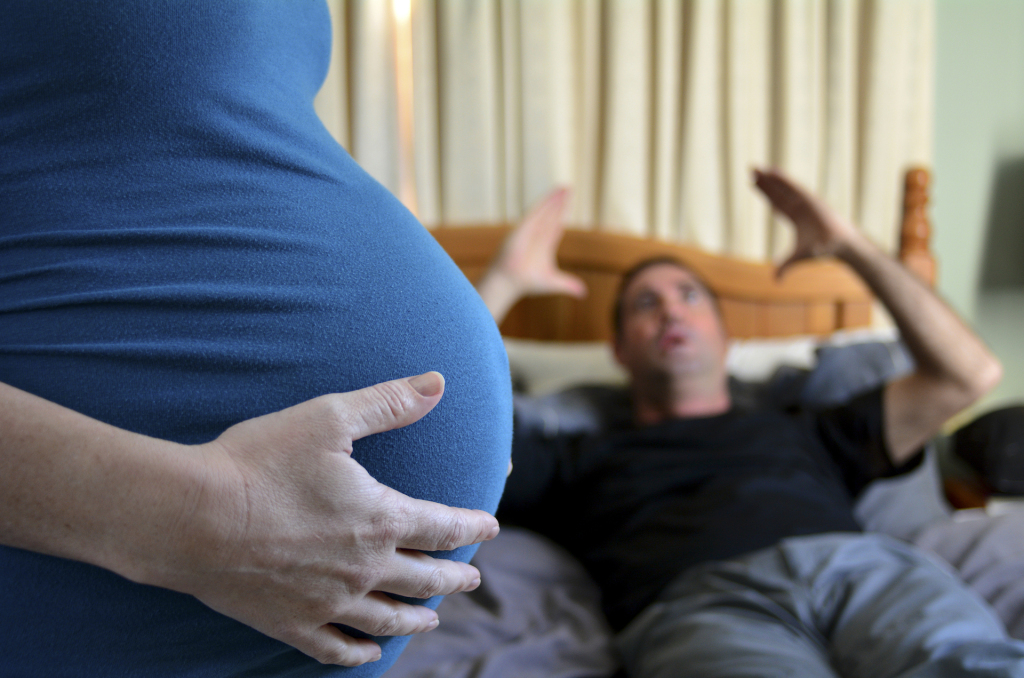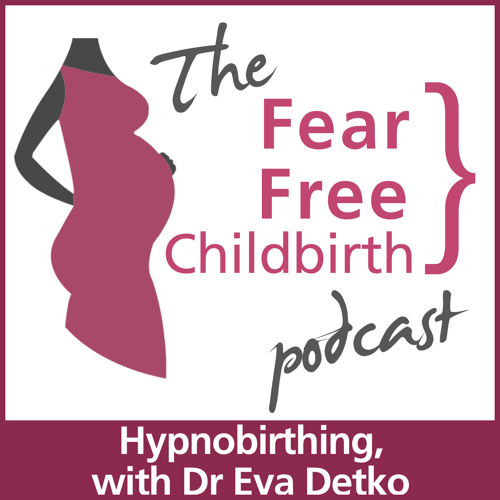Fear of childbirth
Fear of childbirth | Pregnancy Birth and Baby
Fear of childbirth | Pregnancy Birth and Baby beginning of content4-minute read
Listen
Some females experience fear before giving birth but there are things you can do to help manage this. If you’re worried, it’s important to speak to your midwife or doctor about what to expect.
If you’re feeling anxious and stressed, this is not ideal for you or your baby. Talk to your healthcare professional or use some of the techniques below to prepare for your birth.
Types of fears about childbirth
Fear of the unknown
Fear of childbirth can stem from not knowing what is going to happen.
Sometimes first-time parents may not feel confident that they can give birth. Other times, you may feel concerned about negative stories they have heard.
Some females find that a new pregnancy brings up unresolved emotions about previous experiences. It can help if you talk about these feelings with your doctor and midwife so they can guide you to appropriate support.
It’s a good idea to talk to your doctor and midwife about your birth choices and preferences. When females are informed and involved in decision making they tend to feel more relaxed and in control which can help you better cope with labour.
You might like to think about making a birth plan that documents the type of birth experience you would like. Every labour and birth is different. They can be unpredictable so it’s a good idea for your birth plan to be flexible.
Pain
There are different ways you can relieve pain during labour.
There are natural and medical pain management methods. Your doctor or midwife can discuss the different options to help you prepare.
You may be worried about a birth injury such as a tear to your perineal area.
Your doctors, midwives and nurses will be there to look after you and support you before during and after your birth.
Interventions during labour
Sometimes your baby will need help to be born. Your doctor or midwife may recommend an intervention such as a caesarean section or an epidural.
Understanding your options can help you feel empowered and in control. You can do this by talking to your healthcare team, going to antenatal classes and reading educational material.
Using your bowels during birth
You’ve probably heard that women can unintentionally poo and wee during childbirth. It’s nothing to worry about — your doctor and midwife have seen it all before. They will discretely clean this up and you may not even realise it has happened.
Think about who you would like at the birth with you and talk to them about your fears.
Not making it to the hospital in time
The first stage of labour may take longer than you expect. There is usually plenty of time to get to hospital.
Call your hospital's maternity unit or delivery suite if you think you are in labour.
A very small percentage of births in Australia occur outside a hospital or birth centre. If you are worried about this or you live in a remote area, it might help you to learn about what to do if your labour comes early.
Ways to manage your fear
If you are feeling worried or anxious about your birth, it will help to prepare mentally and physically. Some strategies that may help you manage your fear of childbirth include:
- becoming well informed and learning about birth
- attending antenatal classes — or birth classes
- practising relaxation techniques
- preparing a birth plan
- practising meditation or yoga
- eating healthily
- exercising
- talking to someone who you trust such as a counsellor, your midwife, doctor or other mums
When it's something more serious
For a very small number of women, fear of childbirth can become overwhelming. This is called tokophobia. Sometimes the fear is so intense that women may avoid having babies altogether.
This is called tokophobia. Sometimes the fear is so intense that women may avoid having babies altogether.
Other women may experience antenatal anxiety, depression, or post traumatic stress disorder following a difficult birth. These conditions are serious and need treatment.
Where to get help
If you are feeling fearful and overwhelmed, or your fears are affecting your life, contact:
- your doctor
- PANDA: 1300 726 306
- Beyond Blue: 1300 22 4636
You can also call Pregnancy, Birth and Baby on 1800 882 436 to talk to a maternal child health nurse.
Your local Child and Family Health Centre can help you once you have your baby and refer you to other supports if needed.
Sources:
The Royal Women's Hospital (Preparing for labour), WHO (Intrapartum care for a positive childbirth experience), Royal Australian and New Zealand College of Obstetricians and Gynaecologists (Labour and birth), RANZCOG (Pain Relief in Labour and Childbirth)Learn more here about the development and quality assurance of healthdirect content.
Last reviewed: June 2022
Back To Top
Related pages
- Having the baby
- Preparing for the birth
- Anxiety and pregnancy
Need more information?
Pain Relief in Labour and Childbirth
Read more on RANZCOG - Royal Australian and New Zealand College of Obstetricians and Gynaecologists website
Preparing for parenthood - Partners to Parents - becoming parents
Preparing for parenthood will make the transition easier! Learn about the changes that occur when you go from being partners... to parents
Read more on Partners to Parents website
Birth trauma (emotional)
Birth trauma affects many women. But there are ways to reduce your risk of an emotionally traumatic childbirth, while support and treatment are available if you experience symptoms.
But there are ways to reduce your risk of an emotionally traumatic childbirth, while support and treatment are available if you experience symptoms.
Read more on Pregnancy, Birth & Baby website
Birth and beyond - Ngala
Exciting times are ahead!Birth comes after lots of anticipation and preparation
Read more on Ngala website
Birth After Birth Trauma - Birth Trauma
This is a question that we hear often. How can I have another baby?
Read more on Australasian Birth Trauma Association website
Labour and Birth
Read more on RANZCOG - Royal Australian and New Zealand College of Obstetricians and Gynaecologists website
Post traumatic stress disorder following birth - COPE
COPE's purpose is to prevent and improve the quality of life of those living with emotional and mental health problems that occur prior to and within the perinatal period.
Read more on COPE - Centre of Perinatal Excellence website
Post Traumatic Stress Disorder | Peach Tree
Post traumatic stress disorder For most women, giving birth is a wonderful, empowering and joyous event, but for some women this can be a frightening and anxious experience
Read more on Peach Tree Perinatal Wellness website
Just for Dads - Miracle Babies
Read more on Miracle Babies Foundation website
Natural birth
For some expectant mothers the thought of a drug free birth can be downright terrifying. But as Beth explains, if you are equipped with the proper knowledge and right mindset during your pregnancy, a completely drug free birth can be one of the most beautiful and fulfilling experiences of your life.
Read more on Parenthub website
Disclaimer
Pregnancy, Birth and Baby is not responsible for the content and advertising on the external website you are now entering.
OKNeed further advice or guidance from our maternal child health nurses?
1800 882 436
Video call
- Contact us
- About us
- A-Z topics
- Symptom Checker
- Service Finder
- Linking to us
- Information partners
- Terms of use
- Privacy
Pregnancy, Birth and Baby is funded by the Australian Government and operated by Healthdirect Australia.
Pregnancy, Birth and Baby is provided on behalf of the Department of Health
Pregnancy, Birth and Baby’s information and advice are developed and managed within a rigorous clinical governance framework. This website is certified by the Health On The Net (HON) foundation, the standard for trustworthy health information.
This site is protected by reCAPTCHA and the Google Privacy Policy and Terms of Service apply.
This information is for your general information and use only and is not intended to be used as medical advice and should not be used to diagnose, treat, cure or prevent any medical condition, nor should it be used for therapeutic purposes.
The information is not a substitute for independent professional advice and should not be used as an alternative to professional health care. If you have a particular medical problem, please consult a healthcare professional.
Except as permitted under the Copyright Act 1968, this publication or any part of it may not be reproduced, altered, adapted, stored and/or distributed in any form or by any means without the prior written permission of Healthdirect Australia.
Support this browser is being discontinued for Pregnancy, Birth and Baby
Support for this browser is being discontinued for this site
- Internet Explorer 11 and lower
We currently support Microsoft Edge, Chrome, Firefox and Safari. For more information, please visit the links below:
- Chrome by Google
- Firefox by Mozilla
- Microsoft Edge
- Safari by Apple
You are welcome to continue browsing this site with this browser. Some features, tools or interaction may not work correctly.
Fear of childbirth (tokophobia) | Tommy's
Tommy's PregnancyHub
Having some anxiety about giving birth is natural. But if you feel so afraid that you don’t want to do it, it’s important to ask for help.
I’m feeling anxious about giving birth. Is this normal?
You may feel a bit anxious about or afraid of giving birth. This is very common. Pregnancy and childbirth are major life events, so don’t be hard on yourself for having these feelings.
This is very common. Pregnancy and childbirth are major life events, so don’t be hard on yourself for having these feelings.
You may find it helpful to:
- Tell your midwife how you feel. They may be able to reassure you.
- Talk to someone you trust. This could be your partner, friend or family member.
- Start thinking about how you want to give birth and make a birth plan. This can help you feel more organised and in control.
- Find a local antenatal class. This will give you the opportunity to meet others in a similar situation and find out more about what happens in labour.
- Try hypnobirthing. This may help you relax.
- Try our tips for improving mental wellbeing in pregnancy to reduce stress.
- You may come across people who are willing to share their birth stories before you even ask. It’s OK to ask them to stop if it’s not helpful.
Find out more about positive things to prepare for labour.
Tokophobia
It is rare, but some women are so afraid of giving birth that they don’t want to go through with it, even if they really want to have the baby. A severe fear of childbirth may also affect their decision on how to give birth to their baby. This is called Tokophobia and it can happen in any pregnancy. Some women have it in early adulthood or even as a teenager.
A severe fear of childbirth may also affect their decision on how to give birth to their baby. This is called Tokophobia and it can happen in any pregnancy. Some women have it in early adulthood or even as a teenager.
Women with a severe fear of childbirth often have depression or anxiety too.
It can be difficult for other people to understand how someone can be so frightened about something they see as ‘so natural’. But tokophobia is a mental health condition and women who have it need treatment and support.
What causes tokophobia?
Tokophobia can happen if you have:
- a fear of childbirth in your family
- heard frightening birth stories from people in your family
- or have had an anxiety disorder
- experienced sexual abuse, assault or rape
- had gynaecological problems (problems with the female reproductive organs).
“I always knew I would struggle being pregnant because I have a massive fear of childbirth.
It comes from being sexually abused as a child, so things like smear tests are always very traumatic for me.” Julie, mum of one, read her full story.
Some women have a severe fear of childbirth because they have had a traumatic birth experience. In this case, they may have post-traumatic stress disorder. This is a different condition to tokophobia and needs different treatment.
What should I do if I’m afraid of childbirth?
Tell your midwife or doctor about your fears, as early in your pregnancy as possible. They should refer you to a mental health specialist for pregnant women. Ideally, this should be someone with experience of childbirth fears.
You should be given advice on how to cope with your feelings of fear and any other symptoms you may have. You may also be offered cognitive behavioural therapy (CBT).
Your specialist should also discuss your options for giving birth that may help lessen your fears.
If you have a fear of childbirth due to post-traumatic stress disorder you may be offered eye movement desensitisation and reprocessing (EDMR). This a therapy that uses eye movements to dampen the power of the memories and the emotions linked to them.
This a therapy that uses eye movements to dampen the power of the memories and the emotions linked to them.
Make a wellbeing plan
Our online Wellbeing Plan is a tool that helps you start thinking about how you feel and what support you might need in your pregnancy and after the birth.
You can use it to help you talk to your partner, family, friends or midwife about how you are feeling.
Requesting a planned caesarean section
If you feel like your treatment isn’t working, talk to your midwife or doctor about having a planned caesarean section. They will discuss the risks and benefits of having a caesarean compared to a vaginal birth.
The National Institute for Health and Care Excellence states that you should be offered a planned caesarean section if you have had treatment and support but are still too afraid to have a vaginal birth. If an obstetrician is unwilling to perform a caesarean section you should be referred to one who will.
'I wrote a short explanation of my anxiety, its triggers and how people could help me manage it, and asked any new medical staff to read it before dealing with me.
' Paula, read her full story.
More information and support
- Anxiety UK
- No Panic
- The National Association for People Abused in Childhood
- Rape Crisis
Review dates
Reviewed: 22 February 2019 | Next review: 22 February 2022
This content is currently being reviewed by our team. Updated information will be coming soon.
Back to top
Fear of childbirth, how to cope
Let's be honest: childbirth is a very exciting event, if not “frightening”. Conflicting stories of girlfriends giving birth, a lot of information on the Internet, but at the same time, the “unpredictability” of the upcoming process form a very serious fear of childbirth in many pregnant women. At the same time, every sane woman understands with her mind that fear is an additional factor of stress and tension, without which the process of giving birth to a child will certainly be easier and more comfortable. How to get rid of this absolutely unnecessary "fear of childbirth"?
How to get rid of this absolutely unnecessary "fear of childbirth"?
First of all, you need to understand that the fear of childbirth is not something abstract. This fear is formed from smaller fears and anxieties before specific events or sensations, which ultimately form the collective “fear of childbirth”. To deal with it, you need to deal with the more "small".
Fear of pain.
Even in childhood, many girls learn that childbirth is painful. Accordingly, this fear “lives” with them for a long time and takes “roots” deeply and thoroughly. It is important to understand here that pain can be dealt with, there are several ways to do this:
-
Psychoprophylactic methods, about which you can find a lot of information on the Internet or learn from courses for pregnant women. These methods primarily include special breathing techniques that help to concentrate and reduce pain.
-
Epidural anesthesia or drug anesthesia, which will relieve you of pain for sure.
 However, this method has opponents, since this method violates the natural course of the birth process. In this case, you should study the detailed information about this type of anesthesia, consult with your doctor and make an informed decision. Perhaps in your particular case, epidural anesthesia will become a lesser "evil" than a panic fear of childbirth.
However, this method has opponents, since this method violates the natural course of the birth process. In this case, you should study the detailed information about this type of anesthesia, consult with your doctor and make an informed decision. Perhaps in your particular case, epidural anesthesia will become a lesser "evil" than a panic fear of childbirth.
Fear of the unknown and "negative" cases.
This is more of a social fear than a biological one: in the information space there are so many stories of difficult childbirth, grave consequences, complications and dangers that are “available” for reading, that even the most psychologically stable woman begins to “try on” these negative moments for herself. And even having studied a lot of information about how childbirth goes, what difficulties can arise in the process, what “signals” of the body you should pay attention to, childbirth is still scary. In this case, you need to constantly remind yourself that medicine also does not stand still, doctors know how to react in certain situations, moreover, in kind. houses have all the necessary equipment for the most complex and emergency cases. For. To put your mind at ease on this issue:
houses have all the necessary equipment for the most complex and emergency cases. For. To put your mind at ease on this issue:
-
Carefully study all maternity hospitals “available” to you and choose the most suitable one for you.
-
Find a good "doctor" and develop a "plan of action" for yourself.
-
Take your husband or other close person with you to the maternity hospital, who can help you deal with the documents there, answer all the questions of the staff, protect you and give you confidence.
Fear of having a premature baby.
All you need to know in this case: even if it happens that the baby is born ahead of schedule, medicine at the present stage will help to cope with such a situation! A child born at a term of 22 weeks is quite viable, even babies weighing only 500 grams grow up healthy.
Try to think positively and not create additional stress for yourself and your baby, this will only bring anxiety. Tune in to the difficult work that lies ahead for you and your body during childbirth. But this job is up to you! Everything will be fine.
Tune in to the difficult work that lies ahead for you and your body during childbirth. But this job is up to you! Everything will be fine.
Fear of childbirth: TOP of the best tips on how to deal with it
Fear of childbirth: TOP of the best tips on how to deal with it | "Juno"home
Articles
Fear of childbirth: TOP of the best tips on how to deal with it
Despite the fact that childbirth is a natural process, many women experience a strong fear of it. And one can understand such fears, because even now, in the era of modern medicine, maternal mortality has not yet been completely eradicated even in developed countries.
Despite the fact that childbirth is a natural process, many women experience a strong fear of them. And one can understand such fears, because even now, in the era of modern medicine, maternal mortality has not yet been completely eradicated even in developed countries. And there are much more cases of complications without a fatal outcome, but with serious consequences in the form of ruptures, bleeding, etc. However, it is quite possible and necessary to resist such perception. How to overcome the fear of childbirth, you will learn from this article.
And there are much more cases of complications without a fatal outcome, but with serious consequences in the form of ruptures, bleeding, etc. However, it is quite possible and necessary to resist such perception. How to overcome the fear of childbirth, you will learn from this article.
Where does the fear of childbirth come from?
To deal effectively with these psychological phenomena, you need to know its causes. So, the main causes of fear of childbirth are:
- Unknown. First pregnancy and childbirth - a radically new condition that every woman experiences. Without proper informational training, she can become confused and panic.
- Pain. Due to the anatomical features of the female body in general and the reproductive system in particular, childbirth is painful. Pain is a natural companion of this process and is the norm, but even the awareness of this does not guarantee that a woman will not be afraid of her.
- Possible complications.
 Unfortunately, during pregnancy and childbirth, many women experience various anomalies and pathologies, up to and including death. Modern medicine, although it has effective means to reduce such risks, cannot eliminate them completely.
Unfortunately, during pregnancy and childbirth, many women experience various anomalies and pathologies, up to and including death. Modern medicine, although it has effective means to reduce such risks, cannot eliminate them completely. - Loss of beauty. An important factor contributing to the formation of fear of childbirth is the fear of losing attractiveness and sexuality. Indeed, in some cases, hormonal disruptions, intense physical activity during childbirth can damage the appearance.
To one degree or another, these reasons disturb every woman, especially if she is faced with childbirth for the first time. This is a natural phenomenon, since, unlike animals, a person perceives this process not only instinctively, but also at the level of consciousness, which is receptive to external information, reflection and other factors.
Fear of childbirth: how to cope?
Practice shows that anxiety about future childbirth is completely impossible to overcome. Moreover, healthy fears are necessary, as they force the woman to be careful and thereby increase the chances of survival for herself and the child. However, it is necessary to control these emotions and prevent them from developing into a panic that threatens with irrational behavior and can only aggravate the situation. The following tips will help you deal with this.
Moreover, healthy fears are necessary, as they force the woman to be careful and thereby increase the chances of survival for herself and the child. However, it is necessary to control these emotions and prevent them from developing into a panic that threatens with irrational behavior and can only aggravate the situation. The following tips will help you deal with this.
Take information critically. In anticipation of the birth of a child (especially for the first time), a woman has a natural desire to know what awaits her - and this is absolutely right. But here it is important to be able to filter out and analyze the available information. The expectant mother has several ways to get it:
- Online. World Wide Web, on the one hand, allows you to get the most complete information about pregnancy and childbirth. On the other hand, there is a lot of biased and frankly delusional information on this topic on the Internet. On all sorts of forums, you can find terrible posts about all sorts of painful consequences, poor-quality medical care, etc.
 The problem is that even with the real validity of these messages (anything happens in medical practice), there is an information bias in the negative direction, since people, survivors of such an experience write about it more readily than mothers whose births went smoothly.
The problem is that even with the real validity of these messages (anything happens in medical practice), there is an information bias in the negative direction, since people, survivors of such an experience write about it more readily than mothers whose births went smoothly. - From friends and relatives. On the one hand, direct communication with women who have given birth reduces the likelihood of deception. On the other hand, the already familiar problem of “negative bias” arises, since people share negative experiences more often than positive ones. In addition, the relatively small number of known women and relatives violates the statistical representativeness of such information.
- Specialist. For the most objective information on how to overcome your fear of childbirth, contact a qualified professional. This can be done in a clinic or in a training center for expectant mothers. Be sure to consult not only a gynecologist and an obstetrician, but also a psychologist who will teach you how to control fears, preventing them from taking over the mind.

This does not mean that you should never turn to online communities or friends and family for advice. The point is to subject all information to critical reflection and double-check it. By the way, the real negative experience of other mothers can also help - with the right analysis, you can avoid their mistakes. However, you should not get hung up on it, it is better to communicate more with women who have given birth without problems.
Attend training courses. Today, pregnant women have the opportunity to seek help from professionals in special preparatory or medical centers. They organize training courses for expectant mothers, including:
- theoretical studies on the structure of the female body and its reproductive system, the processes of conception, gestation and childbirth, the basics of subsequent child care, possible complications, etc.;
- practical training in preparation for conception, pregnancy and childbirth, child care, maintaining one's own health;
- counseling courses for women who are giving birth for the first time or have had a bad pregnancy experience;
- physical exercises and procedures to strengthen the muscles of the pelvis and organs of the reproductive system, breathing exercises.

In addition, such centers for the preparation of expectant mothers are a place where women can communicate with each other, share their experiences and learn from someone else's. It is much more likely to get adequate firsthand information here than on the World Wide Web. Do not forget to also regularly visit a doctor, undergo the necessary examinations in order to monitor your own health and the condition of a developing baby.
Diversify your leisure time. Obsessive thoughts about possible complications before childbirth, pain and similar consequences only contribute to increased fear. Try to distract yourself from them by taking up your brain with some interesting hobby - especially since the status of a pregnant woman gives you a lot of free time. Needlework, learning a foreign language, cooking classes, painting, going to the theater or cinema and other activities will help direct your thoughts in a different, positive direction.
Combine business with pleasure - for example, during pregnancy, learn knitting or sewing in order to later create beautiful clothes or jewelry for your child. And, importantly, communicate a lot with friends, relatives, other mothers (in the same perinatal center). Social activity is an effective remedy for blues, feelings of alienation and prenatal depression.
And, importantly, communicate a lot with friends, relatives, other mothers (in the same perinatal center). Social activity is an effective remedy for blues, feelings of alienation and prenatal depression.
Pay attention to your spouse. During pregnancy, the character of a woman often manifests self-centeredness, capriciousness. This is a natural phenomenon, because the body carrying a child needs help and becomes more demanding. At the same time, try to communicate with your spouse more often - so you can feel emotional support from him and avoid the feeling of alienation that increases the fear of childbirth.
Such contacts can be different: a trip to a restaurant, cinema, theater, the same parent training courses (especially since a man must also take them). Do not forget about the intimate side of life (of course, with reservations), which, in addition to emotional closeness with your loved one, will give you a lot of pleasant physical sensations.
Go in for sports. Often, women experiencing pregnancy for the first time, for fear of harming the baby, completely exclude physical activity from their lives. This is a fundamentally wrong approach - it has been proven that inactivity can provoke the appearance of various complications (including during childbirth) or aggravate existing ones. On the contrary, moderate physical activity will improve immunity, strengthen the muscles of the small pelvis, abdomen and hips, which will help to endure and give birth to a healthy baby with minimal pain. To rule out possible harm to the baby, consult with a specialist about what exercises can be done during pregnancy.
Often, women experiencing pregnancy for the first time, for fear of harming the baby, completely exclude physical activity from their lives. This is a fundamentally wrong approach - it has been proven that inactivity can provoke the appearance of various complications (including during childbirth) or aggravate existing ones. On the contrary, moderate physical activity will improve immunity, strengthen the muscles of the small pelvis, abdomen and hips, which will help to endure and give birth to a healthy baby with minimal pain. To rule out possible harm to the baby, consult with a specialist about what exercises can be done during pregnancy.
Watch your diet. Successful pregnancy and childbirth depend on what the woman eats. Some products have a negative impact on the state of the reproductive system, while others, on the contrary, have a positive effect. Consult with a nutritionist about the composition of the daily diet, frequency of meals. In addition, tasty food is a natural source of pleasure for humans. When it is taken in the body, endorphins, serotonin, dopamine are produced, which improve physical well-being and improve mood. Also, do not forget to use the appropriate vitamins (which the same nutritionist will tell about), because they are responsible not only for the physical, but also for the emotional state.
When it is taken in the body, endorphins, serotonin, dopamine are produced, which improve physical well-being and improve mood. Also, do not forget to use the appropriate vitamins (which the same nutritionist will tell about), because they are responsible not only for the physical, but also for the emotional state.
The main thing that needs to be understood is that despite the objective complexity and painfulness of childbirth, they can pass quite easily if you carefully monitor your health. Do not be ashamed to ask qualified advice or learn from someone else's experience, because it is knowledge that is the most powerful weapon against any fear.
Other articles
10.10.2022
eighth week of pregnancy
So, the 8th obstetric week of pregnancy refers to the 1st trimester, which is especially important for the development of the unborn child, since it is at the period of 8-9 weeks of pregnancy that the laying and development of your baby's organs and systems takes place.









